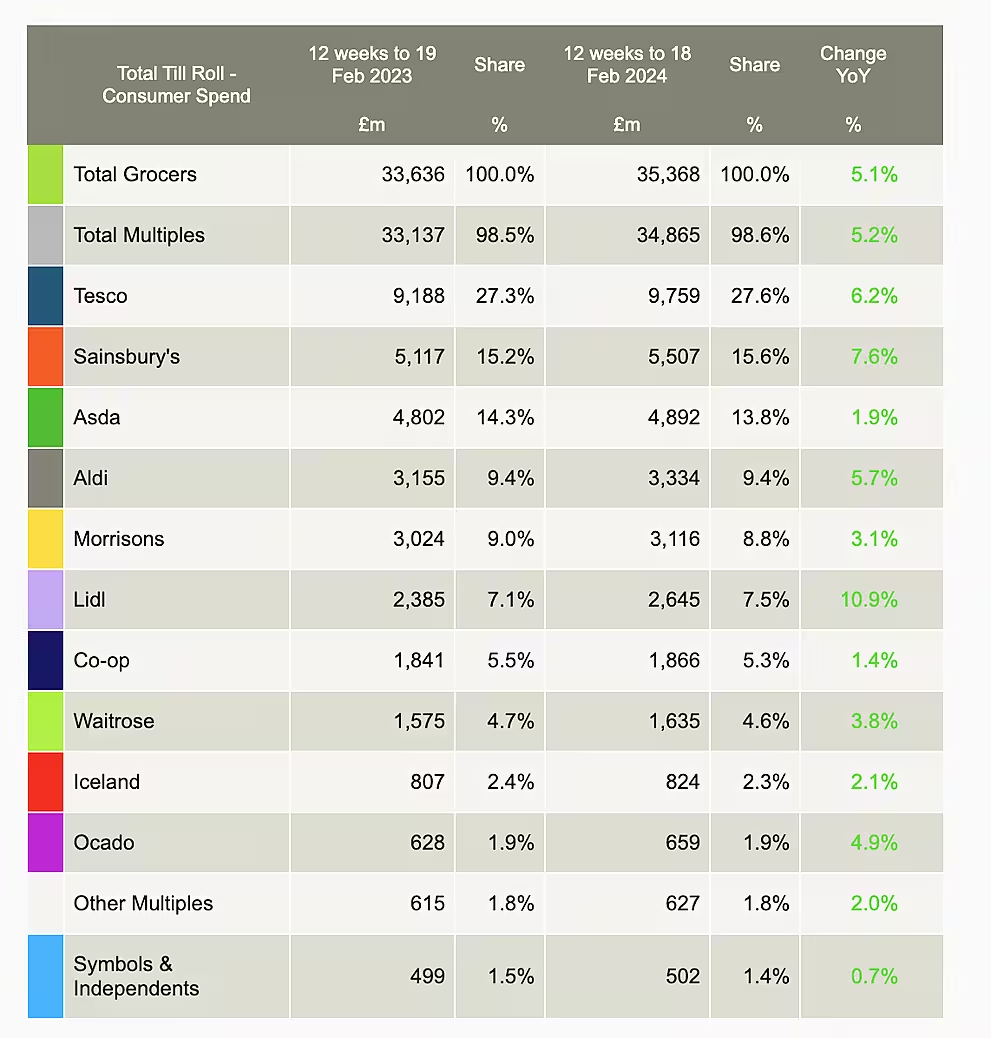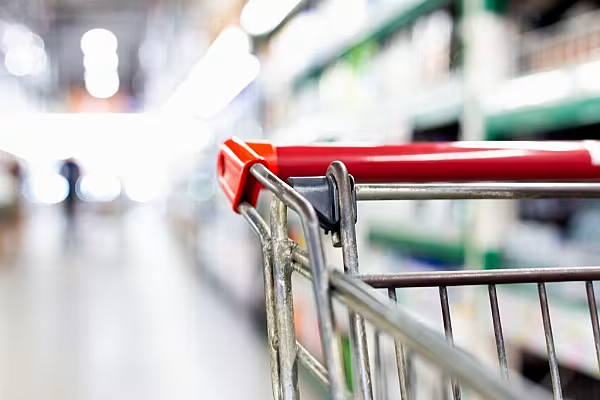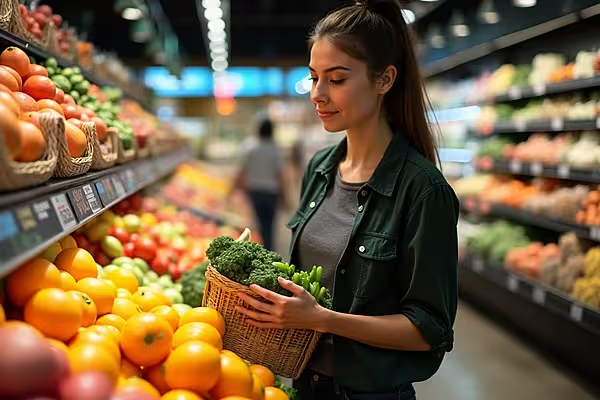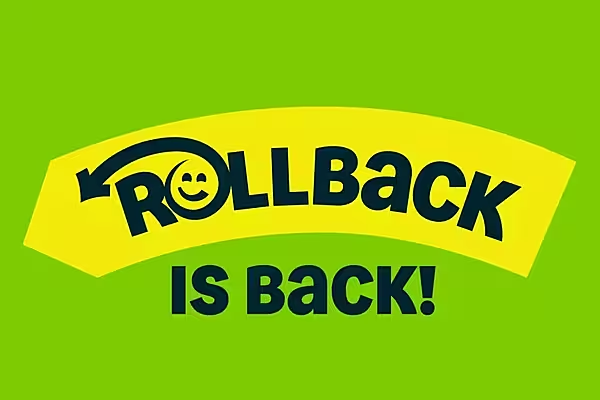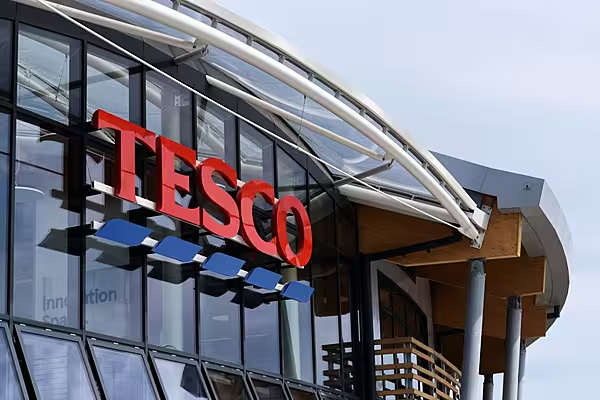Grocery price inflation in the UK has dropped back to 5.3% – its lowest rate since March 2022 – new data from Kantar has revealed.
According to the research firm, grocery price inflation for February 2024 is 1.5 percentage points lower than it was in the previous month.
“Things are looking up for shoppers this February,” commented Tom Steel, strategic insight director at Kantar. “Consumers have been navigating a grocery inflation rate of more than 4% for two years now, so this latest easing of price rises is especially welcome.”
Promotional Spend
Kantar noted that take-home grocery sales went up by 5.1%, in value terms, in the four weeks to 18 February, however, value is still key for shoppers, with £586 million (€684.9 million) more spent on promotions than during the same month last year.
“More generally, we saw promotions accelerate this month, after a post-Christmas slowdown,” Steel said, noting that the past month has seen Morrisons launch a price match scheme with Aldi and Lidl, after Asda made the move in January.
From a promotional standpoint, “Sainsbury’s and Iceland’s efforts paid off, in particular, and they were the only retailers to attract more shoppers through their doors,” he added.
At the same time, the battle between supermarkets’ own-label lines and brands “remains fierce,” said Steel. “Own-label nipped ahead this month, growing sales by 5.5% versus branded products at 5.3%.”
Supermarket Stars
In terms of the best-performing supermarkets in the period, discounter Lidl was the only grocer to achieve double-digit sales growth in the 12 weeks to 18 February, seeing its sales go up by 10.9%.
Lidl is now the fastest-growing retailer in the UK for the sixth month running, Kantar noted.
Rival discounter Aldi also grew ahead of the market, boosting sales by 5.7% and maintaining its 9.4% share.
Market leader Tesco reported a 6.2% increase in sales, with the grocer now sitting on 27.6% market share, while Sainsbury’s reported sales going up by 7.6%, to sit on 15.6% market share.
